 W
WThe Application Programming Interface Exchange(APIX) is a global fintech platform.
 W
WAIR is a cross-platform runtime system developed by Adobe Systems for building desktop applications and mobile applications, programmed using Adobe Animate, ActionScript, and optionally Apache Flex. It was originally released in 2008. The runtime supports installable applications on Windows, macOS, and mobile operating systems, including Android, iOS and BlackBerry Tablet OS.
 W
WAdvanced Linux Sound Architecture (ALSA) is a software framework and part of the Linux kernel that provides an application programming interface (API) for sound card device drivers.
 W
WAllegro is a software library for video game development. The functionality of the library includes support for basic 2D graphics, image manipulation, text output, audio output, MIDI music, input and timers, as well as additional routines for fixed-point and floating-point matrix arithmetic, Unicode strings, file system access, file manipulation, data files, and 3D graphics. The library is written in the C programming language and designed to be used with C, C++, or Objective-C, with bindings available for Python, Lua, Scheme, D, Go, and other languages. Allegro comes with extensive documentation and many examples.
 W
WThe Apache Portable Runtime (APR) is a supporting library for the Apache web server. It provides a set of APIs that map to the underlying operating system (OS). Where the OS does not support a particular function, APR will provide an emulation. Thus programmers can use the APR to make a program truly portable across platforms.
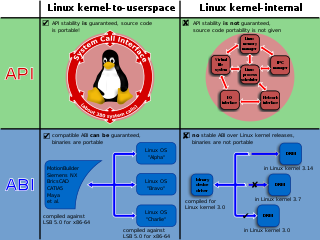 W
WIn computer software, an application binary interface (ABI) is an interface between two binary program modules. Often, one of these modules is a library or operating system facility, and the other is a program that is being run by a user.
 W
WThe Application Kit, usually called AppKit, is a graphical user interface toolkit from NeXTSTEP. Along with Foundation and Display PostScript, it is one of the core parts of the OpenStep specification of APIs. AppKit and Foundation were inherited into Cocoa, the Objective-C API framework of macOS. GNUstep, GNU's implementation of the OpenStep/Cocoa API, also contains an AppKit.
 W
WAsynchronous module definition (AMD) is a specification for the programming language JavaScript. It defines an application programming interface (API) that defines code modules and their dependencies, and loads them asynchronously if desired. Implementations of AMD provide the following benefits:Website performance improvements. AMD implementations load smaller JavaScript files, and then only when they are needed. Fewer page errors. AMD implementations allow developers to define dependencies that must load before a module is executed, so the module does not try to use outside code that is not available yet.
 W
WC3D Toolkit is a geometric modeling kit originally developed by ASCON Group, now by C3D Labs, using C++ and written in Visual Studio. C3D Toolkit responsible for constructing and editing geometric models. It can be licensed by other companies for use in their 3D computer graphics software products. The most widely known software in which C3D Toolkit is typically used are computer aided design (CAD), computer-aided manufacturing (CAM), and computer-aided engineering (CAE) systems.
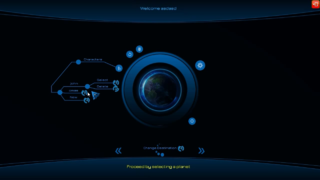 W
WCrazy Eddie's GUI (CEGUI) is a graphical user interface (GUI) library for the programming language C++. It was designed for the needs of video games, but is usable for non-game tasks, such as applications and tools. It is designed for user flexibility in look-and-feel, and to be adaptable to the user's choice in tools and operating systems.
 W
WClanLib is a video game SDK, supporting Microsoft Windows, macOS, and Linux, with partial support for mobile platforms. It has full hardware accelerated graphics support through OpenGL, and also a software renderer. ClanLib also helps in playing sound, using the Vorbis or MikMod libraries, and has classes for collision detection, GUIs, XML, networking, and other things that may be helpful to a game programmer.
 W
WCloudKit is an integrated macOS and iOS API that functions as a backend as a service (BaaS). CloudKit is the framework that powers iCloud on iOS, macOS and on the web.
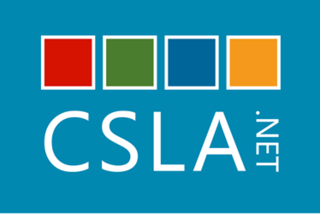 W
WCSLA .NET is a software framework created by Rockford Lhotka that provides a standard way to create robust object oriented programs using business objects. Business objects are objects that abstract business entities in an object oriented program. Some examples of business entities include sales orders, employees, or invoices.
 W
WMicrosoft DirectX is a collection of application programming interfaces (APIs) for handling tasks related to multimedia, especially game programming and video, on Microsoft platforms. Originally, the names of these APIs all began with "Direct", such as Direct3D, DirectDraw, DirectMusic, DirectPlay, DirectSound, and so forth. The name DirectX was coined as a shorthand term for all of these APIs and soon became the name of the collection. When Microsoft later set out to develop a gaming console, the X was used as the basis of the name Xbox to indicate that the console was based on DirectX technology. The X initial has been carried forward in the naming of APIs designed for the Xbox such as XInput and the Cross-platform Audio Creation Tool (XACT), while the DirectX pattern has been continued for Windows APIs such as Direct2D and DirectWrite.
 W
WDistributed Codec Engine (DCE) is an API and its implementation as software library ("libdce") by Texas Instruments. The library was released under the Revised BSD License and some additional terms.
 W
WThe Document Object Model (DOM) is a cross-platform and language-independent interface that treats an XML or HTML document as a tree structure wherein each node is an object representing a part of the document. The DOM represents a document with a logical tree. Each branch of the tree ends in a node, and each node contains objects. DOM methods allow programmatic access to the tree; with them one can change the structure, style or content of a document. Nodes can have event handlers attached to them. Once an event is triggered, the event handlers get executed.
 W
WEGL is an interface between Khronos rendering APIs and the underlying native platform windowing system. EGL handles graphics context management, surface/buffer binding, rendering synchronization, and enables "high-performance, accelerated, mixed-mode 2D and 3D rendering using other Khronos APIs." EGL is managed by the non-profit technology consortium Khronos Group.
 W
WFyne is a free and open-source cross-platform widget toolkit for creating graphical user interfaces (GUIs) across desktop and mobile platforms. It is inspired by the principles of Material Design to create applications that look and behave consistently across all platforms. It is licensed under the terms of the 3-clause BSD License, supporting the creation of free and proprietary applications. In December 2019 Fyne became the most popular GUI toolkit for Go, by GitHub star count and in early February 2020 it was trending as #1 project in GitHub trending ranks.
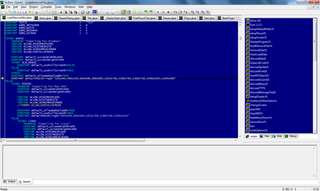 W
WGLBasic is a commercial BASIC programming language that can compile to various platforms including Windows, Linux, Mac OS X, and some handheld devices. The language is designed to be simple and intuitive.
 W
WGNU Pth is a POSIX/ANSI-C based user space thread library for UNIX platforms that provides priority-based scheduling for multithreading applications. GNU Pth targets for a high degree of portability. It is part of the GNU Project.
 W
WGTK is a free and open-source cross-platform widget toolkit for creating graphical user interfaces (GUIs). It is licensed under the terms of the GNU Lesser General Public License, allowing both free and proprietary software to use it. Along with Qt, it is one of the most popular toolkits for the Wayland and X11 windowing systems.
 W
WImport.io is a SaaS web data integration (WDI) platform, which allows people to convert unstructured web data into a structured format by extracting, preparing and integrating web data for consumption in analytic platforms or used in business, sales or marketing applications.
 W
WThe International Image Interoperability Framework defines several application programming interfaces that provide a standardised method of describing and delivering images over the web, as well as "presentation based metadata" about structured sequences of images. If institutions holding artworks, books, newspapers, manuscripts, maps, scrolls, single sheet collections, and archival materials provide IIIF endpoints for their content, any IIIF-compliant viewer or application can consume and display both the images and their structural and presentation metadata.
 W
WKDE Frameworks is a collection of libraries and software frameworks readily available to any Qt-based software stacks or applications on multiple operating systems. Featuring frequently needed functionality solutions like hardware integration, file format support, additional graphical control elements, plotting functions, spell checking the collection serves as technological foundation for KDE Plasma 5 and KDE Applications distributed under the GNU Lesser General Public License (LGPL).
 W
WKDE Platform 4 was a collection of libraries and software frameworks by KDE that served as technological foundation for KDE Software Compilation 4 distributed under the GNU Lesser General Public License (LGPL). KDE Platform 4 was the successor to KDElibs and the predecessor of KDE Frameworks. KDE Platform 4 is the only version of KDE Platform, see KDE’s brand repositioning.
 W
WLADSPA is an acronym for Linux Audio Developer's Simple Plugin API. It is an application programming interface (API) standard for handling audio filters and audio signal processing effects, licensed under the GNU Lesser General Public License (LGPL). It was originally designed for Linux through consensus on the Linux Audio Developers Mailing List, but works on a variety of other platforms. It is used in many free audio software projects and there is a wide range of LADSPA plug-ins available.
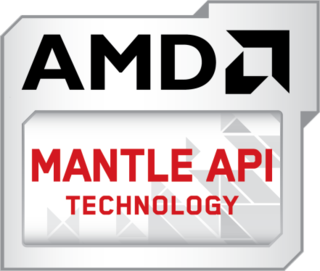 W
WMantle was a low-overhead rendering API targeted at 3D video games. AMD originally developed Mantle in cooperation with DICE, starting in 2013. Mantle was designed as an alternative to Direct3D and OpenGL, primarily for use on personal computers, although Mantle supports the GPUs present in the PlayStation 4 and in the Xbox One. In 2015, Mantle's public development was suspended and in 2019 completely discontinued, as DirectX 12 and the Mantle-derived Vulkan rose in popularity.
 W
WMarmalade SDK was a cross-platform software development kit and game engine from Marmalade Technologies Limited that contains library files, samples, documentation and tools required to develop, test and deploy applications for mobile devices.
 W
WThe Mobile 3D Graphics API, commonly referred to as M3G, is a specification defining an API for writing Java programs that produce 3D computer graphics. It extends the capabilities of the Java ME, a version of the Java platform tailored for embedded devices such as mobile phones and PDAs. The object-oriented interface consists of 30 classes that can be used to draw complex animated three-dimensional scenes. M3G was developed under the Java Community Process as JSR 184. As of 2007, the current version of M3G is 1.1, but version 2.0 is in development as JSR 297.
 W
WO3D is an open-source JavaScript API created by Google for creating interactive 3D graphics applications that run in a web browser window or in a XUL desktop application. O3D may be crafted for use in any application area, however it is geared towards games, advertisements, 3D model viewers, product demos, simulations, engineering applications, control and monitoring systems, or massive online virtual worlds. O3D is currently in Google's incubation lab, and was originally built as a web browser plugin. Since 2010, the new implementation of O3D is a JavaScript library implemented on top of WebGL.
 W
WThe Open Sound System (OSS) is an interface for making and capturing sound in Unix and Unix-like operating systems. It is based on standard Unix devices system calls. The term also sometimes refers to the software in a Unix kernel that provides the OSS interface; it can be thought of as a device driver for sound controller hardware. The goal of OSS is to allow the writing of sound-based applications that are agnostic of the underlying sound hardware.
 W
WOpenAL is a cross-platform audio application programming interface (API). It is designed for efficient rendering of multichannel three-dimensional positional audio. Its API style and conventions deliberately resemble those of OpenGL. OpenAL is an environmental 3D audio library, which can add realism to a game by simulating attenuation, the Doppler effect, and material densities. OpenAL aimed to originally be an open standard and open-source replacement for proprietary 3D audio APIs such as DirectSound and Core Audio, though in practice has largely been implemented on various platforms as a wrapper around said proprietary APIs or as a proprietary and vendor-specific fork. While the reference implementation later became proprietary, there are open source implementations such as OpenAL Soft available.
 W
WOpenCL is a framework for writing programs that execute across heterogeneous platforms consisting of central processing units (CPUs), graphics processing units (GPUs), digital signal processors (DSPs), field-programmable gate arrays (FPGAs) and other processors or hardware accelerators. OpenCL specifies programming languages for programming these devices and application programming interfaces (APIs) to control the platform and execute programs on the compute devices. OpenCL provides a standard interface for parallel computing using task- and data-based parallelism.
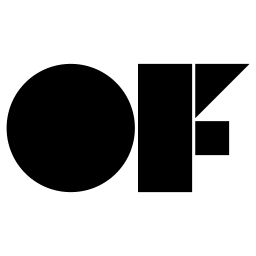 W
WopenFrameworks is an open source toolkit designed for creative coding founded by Zachary Lieberman, Theo Watson and Arturo Castro. OpenFrameworks is written in C++ and built on top of OpenGL. It runs on Microsoft Windows, macOS, Linux, iOS, Android and Emscripten. It is maintained by Zachary Lieberman, Theo Watson and Arturo Castro with contributions by other members of the openFrameworks community.
 W
WOpenGL is a cross-language, cross-platform application programming interface (API) for rendering 2D and 3D vector graphics. The API is typically used to interact with a graphics processing unit (GPU), to achieve hardware-accelerated rendering.
 W
WThe application programming interface (API) OpenMP supports multi-platform shared-memory multiprocessing programming in C, C++, and Fortran, on many platforms, instruction-set architectures and operating systems, including Solaris, AIX, HP-UX, Linux, macOS, and Windows. It consists of a set of compiler directives, library routines, and environment variables that influence run-time behavior.
 W
WOpenSocial is a public specification that defines a component hosting environment (container) and a set of common application programming interfaces (APIs) for Web-based applications. Initially, it was designed for social network applications and developed by Google along with MySpace and a number of other social networks. More recently, it has become adopted as a general use runtime environment for allowing untrusted and partially trusted components from third parties to run in an existing web application. The OpenSocial Foundation moved to integrate or support numerous other Open Web technologies. This includes OAuth and OAuth 2.0, Activity Streams, and Portable Contacts, among others.
 W
WOpenXR is an open, royalty-free standard for access to virtual reality and augmented reality platforms and devices. It is developed by a working group managed by the Khronos Group consortium. OpenXR was announced by the Khronos Group on February 27, 2017 during GDC 2017. A provisional version of the standard was released on March 18, 2019 to enable developers and implementers to provide feedback on it. On July 29, 2019, OpenXR 1.0 was released to the public by Khronos Group at SIGGRAPH 2019.
 W
WIn computing, a plug-in is a software component that adds a specific feature to an existing computer program. When a program supports plug-ins, it enables customization.
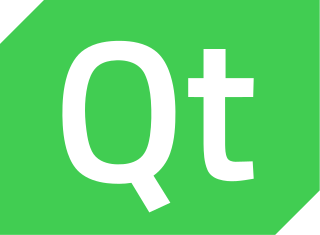 W
WQt is a free and open-source widget toolkit for creating graphical user interfaces as well as cross-platform applications that run on various software and hardware platforms such as Linux, Windows, macOS, Android or embedded systems with little or no change in the underlying codebase while still being a native application with native capabilities and speed.
 W
WRaylib is a cross-platform open-source software development library. The library is meant to create graphical applications and games. The official website introduces it as "a simple and easy-to-use library to enjoy video games programming."
 W
WIn computer programming, a shim is a library that transparently intercepts API calls and changes the arguments passed, handles the operation itself or redirects the operation elsewhere. Shims can be used to support an old API in a newer environment, or a new API in an older environment. Shims can also be used for running programs on different software platforms than they were developed for.
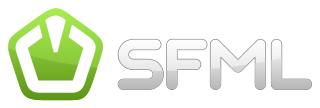 W
WSimple and Fast Multimedia Library (SFML) is a cross-platform software development library designed to provide a simple application programming interface (API) to various multimedia components in computers. It is written in C++ with bindings available for C, Crystal, D, Euphoria, Go, Java, Julia, .NET, Nim, OCaml, Python, Ruby, and Rust. Experimental mobile ports were made available for Android and iOS with the release of SFML 2.2.
 W
WSimple DirectMedia Layer (SDL) is a cross-platform software development library designed to provide a hardware abstraction layer for computer multimedia hardware components. Software developers can use it to write high-performance computer games and other multimedia applications that can run on many operating systems such as Android, iOS, Linux, macOS, and Windows.
 W
WSmartDeviceLink consists of two distinct software elements: a core automotive piece which wraps in-vehicle services and integrates to the in-vehicle HMI, and a mobile proxy, which executes APIs to access and use services on the automotive head unit.
 W
WStormEngineC is a 3D graphics library written in JavaScript and using several HTML5 features like WebGL, WebCL and WebSockets. It provides an easy way to load objects in OBJ and Collada format and add the physical simulation for them. The source code is free and is hosted in GitHub.
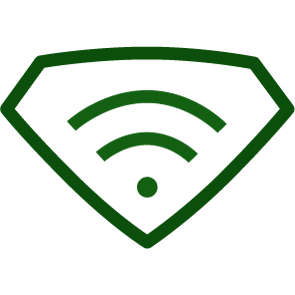 W
WSuperfeedr is a feed API built on PubSubHubbub which is sometimes referred to as PuSH. It transforms a variety of feeds into standardized RSS, Atom or JSON format and distributes them via PubSubHubbub or XMPP. This allows subscribers to receive notifications of new or updated content from their feeds, and publishers to send those notifications.
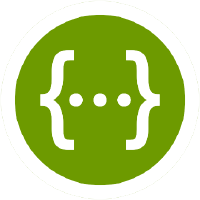 W
WSwagger is an Interface Description Language for describing RESTful APIs expressed using JSON. Swagger is used together with a set of open-source software tools to design, build, document, and use RESTful web services. Swagger includes automated documentation, code generation, and test-case generation.
 W
WSYCL is a higher-level programming model for OpenCL as a single-source domain specific embedded language (DSEL) based on pure C++11 for SYCL 1.2.1 to improve programming productivity. This is a standard developed by Khronos Group, announced in March 2014.
 W
WIn computing, a system call is the programmatic way in which a computer program requests a service from the kernel of the operating system on which it is executed. This may include hardware-related services, creation and execution of new processes, and communication with integral kernel services such as process scheduling. System calls provide an essential interface between a process and the operating system.
 W
WThreadWeaver is a system library initially developed for KDE Software Compilation 4 and later refactored for KDE Frameworks 5.
 W
WTk is a free and open-source, cross-platform widget toolkit that provides a library of basic elements of GUI widgets for building a graphical user interface (GUI) in many programming languages.
 W
WTWAIN and TWAIN Direct are application programming interfaces (APIs) and communication protocols that regulate communication between software and digital imaging devices, such as image scanners and digital cameras. TWAIN is supported on Microsoft Windows, Linux and Mac OS X.
 W
WWebCL is a JavaScript binding to OpenCL for heterogeneous parallel computing within any compatible web browser without the use of plug-ins, first announced in March 2011. It is developed on similar grounds as OpenCL and is considered as a browser version of the latter. Primarily, WebCL allows web applications to actualize speed with multi-core CPUs and GPUs. With the growing popularity of applications that need parallel processing like image editing, augmented reality applications and sophisticated gaming, it has become more important to improve the computational speed. With these background reasons, a non-profit Khronos Group designed and developed WebCL, which is a Javascript binding to OpenCL with a portable kernel programming, enabling parallel computing on web browsers, across a wide range of devices. In short, WebCL consists of two parts, one being Kernel programming, which runs on the processors (devices) and the other being JavaScript, which binds the web application to OpenCL. The completed and ratified specification for WebCL 1.0 was released on March 19, 2014.
 W
WWebKit is a browser engine developed by Apple and primarily used in its Safari web browser, as well as all iOS web browsers. WebKit is also used by the BlackBerry Browser, PlayStation consoles beginning from the PS3, the Tizen mobile operating systems, and a browser included with the Amazon Kindle e-book reader. WebKit's C++ application programming interface (API) provides a set of classes to display Web content in windows, and implements browser features such as following links when clicked by the user, managing a back-forward list, and managing a history of pages recently visited.
 W
WXlib is an X Window System protocol client library written in the C programming language. It contains functions for interacting with an X server. These functions allow programmers to write programs without knowing the details of the protocol. Few applications use Xlib directly; rather, they employ other libraries that use Xlib functions to provide widget toolkits:X Toolkit Intrinsics (Xt) Athena widget set (Xaw) Motif FLTK GTK Qt Tk SDL SFML